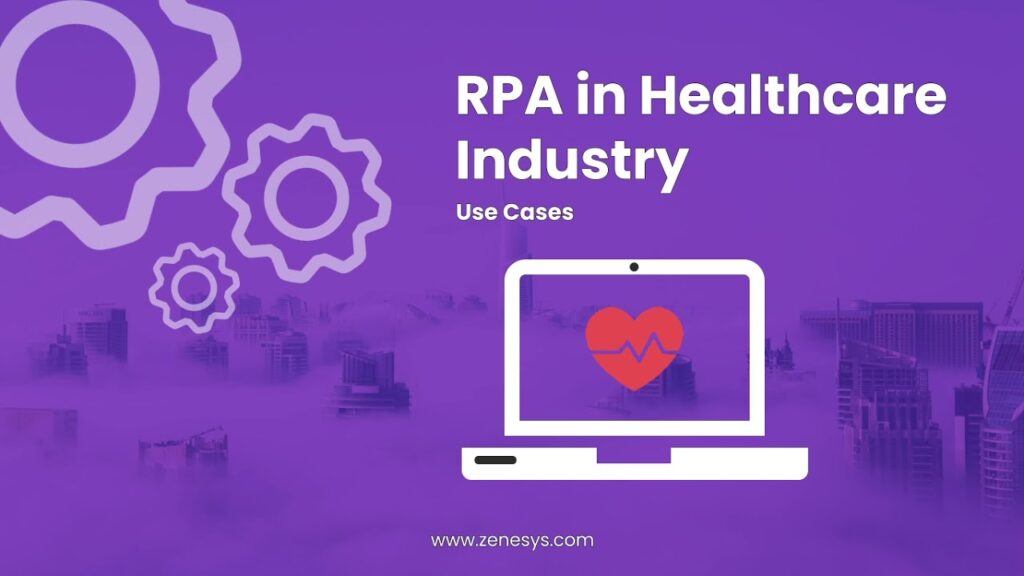Robotic Process Automation: Revolutionizing Healthcare
In the fast-paced world we live in, the need for efficiency and accuracy in healthcare is paramount. The healthcare industry, being one of the largest and most complex sectors globally, has long struggled to streamline processes while maintaining the delivery of quality care. However, with the advent of technology and the rise of Robotic Process Automation (RPA), a new era has dawned in the realm of healthcare.
RPA, as its name suggests, involves the use of robots or automated software to handle repetitive and rule-based tasks in various industries. In the context of healthcare, RPA has proven to be a game-changer, drastically transforming the way administrative and operational tasks are performed. From managing patient records to billing and claims processing, RPA has the potential to revolutionize the healthcare industry.
The implementation of RPA in healthcare brings a plethora of benefits, significantly improving overall efficiency and reducing costs. Traditionally, healthcare professionals have grappled with mountains of paperwork, navigating through a labyrinth of administrative tasks that often distract them from focusing on patient care. However, with RPA, these mundane tasks can be automated, freeing up valuable time for healthcare providers to allocate towards more critical and complex aspects of their work.
One area where RPA has made significant strides is in the management of patient records. The process of manually inputting and updating patient data is not only time-consuming but also prone to errors. RPA technology can seamlessly integrate with existing Electronic Health Record (EHR) systems, automating data entry and ensuring accuracy. This not only saves time but also enhances patient safety by minimizing the risk of miscommunication or misinterpretation of vital medical information.
Additionally, RPA has paved the way for efficient claims processing and billing in healthcare. Traditionally, the billing process involved meticulous examination of medical records, coding, and verification. However, with the implementation of RPA, tasks such as verifying insurance eligibility, generating claims, and tracking payments can be automated, significantly reducing processing time and minimizing billing errors.
Furthermore, RPA in healthcare has played a vital role in enhancing compliance and regulatory adherence. With ever-evolving healthcare regulations and compliance requirements, ensuring adherence can prove to be a daunting task. RPA technology can carry out regular audits and checks, flagging any potential discrepancies or non-compliance issues promptly. This not only streamlines the compliance process but also reduces the risk of penalties and legal ramifications.
While the benefits of RPA in healthcare are undoubtedly transformative, it is crucial to address the concerns surrounding its implementation. One common fear is the potential job losses resulting from the automation of tasks traditionally performed by humans. However, proponents argue that RPA does not seek to replace healthcare professionals but rather augment their capabilities. By automating repetitive and mundane tasks, healthcare providers can focus on patient-centric activities, thereby improving the overall quality of care.
Another concern pertaining to RPA in healthcare is data security and patient privacy. With the automation of tasks involving sensitive patient information, ensuring data privacy becomes imperative. However, RPA technology can be designed with robust security measures in place, including encryption, access controls, and audit logs, to safeguard patient data and mitigate the risk of data breaches.
The future of healthcare lies in the seamless integration of technology, and RPA is at the forefront of this revolution. With its ability to automate repetitive and time-consuming tasks, RPA has the potential to revolutionize the healthcare industry, improving efficiency, reducing costs, and enhancing patient care. As technology continues to advance, we can expect further innovations in RPA, opening up new possibilities and driving even greater transformations in healthcare.
In conclusion, the healthcare industry is on the brink of a technological revolution, and RPA is at the forefront of this transformation. By automating administrative and operational tasks, RPA brings with it improved efficiency, cost reduction, and enhanced patient care. While concerns surrounding job displacement and data security persist, the benefits of RPA undoubtedly outweigh the challenges. As we delve deeper into the era of automation, it is imperative for healthcare organizations to embrace RPA to unlock its full potential and usher in a new era in healthcare delivery.
Industrial Robot
“Revolutionizing Healthcare Operations: Unleashing the Power of Robotic Process Automation”


